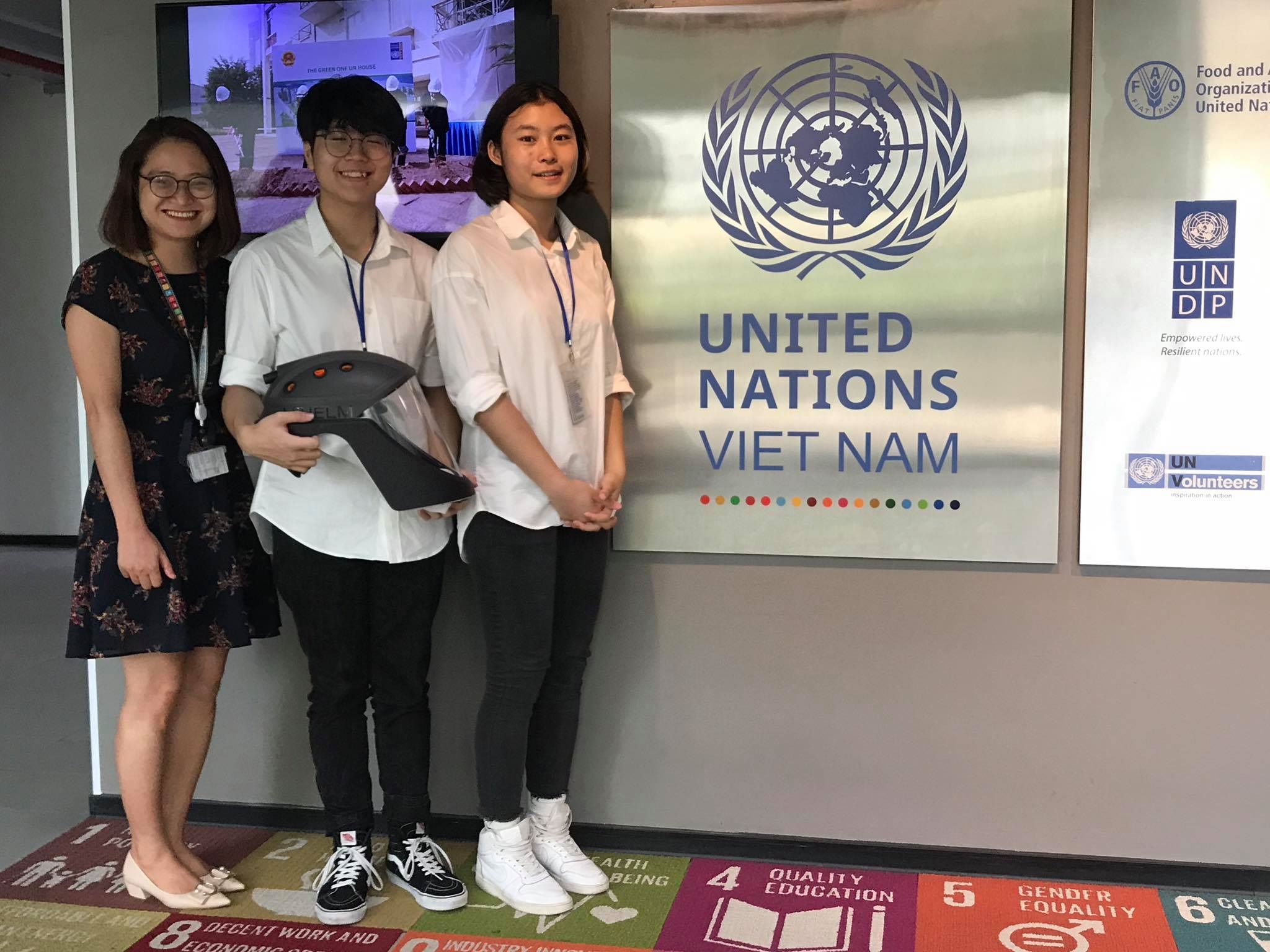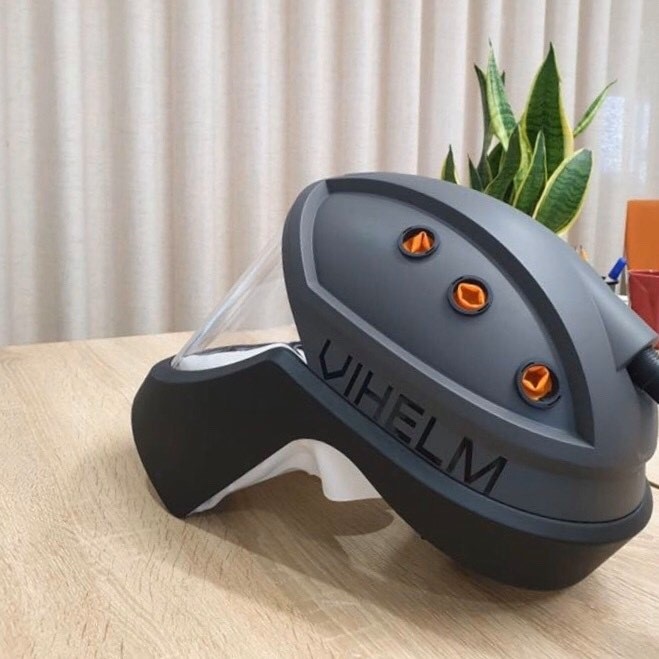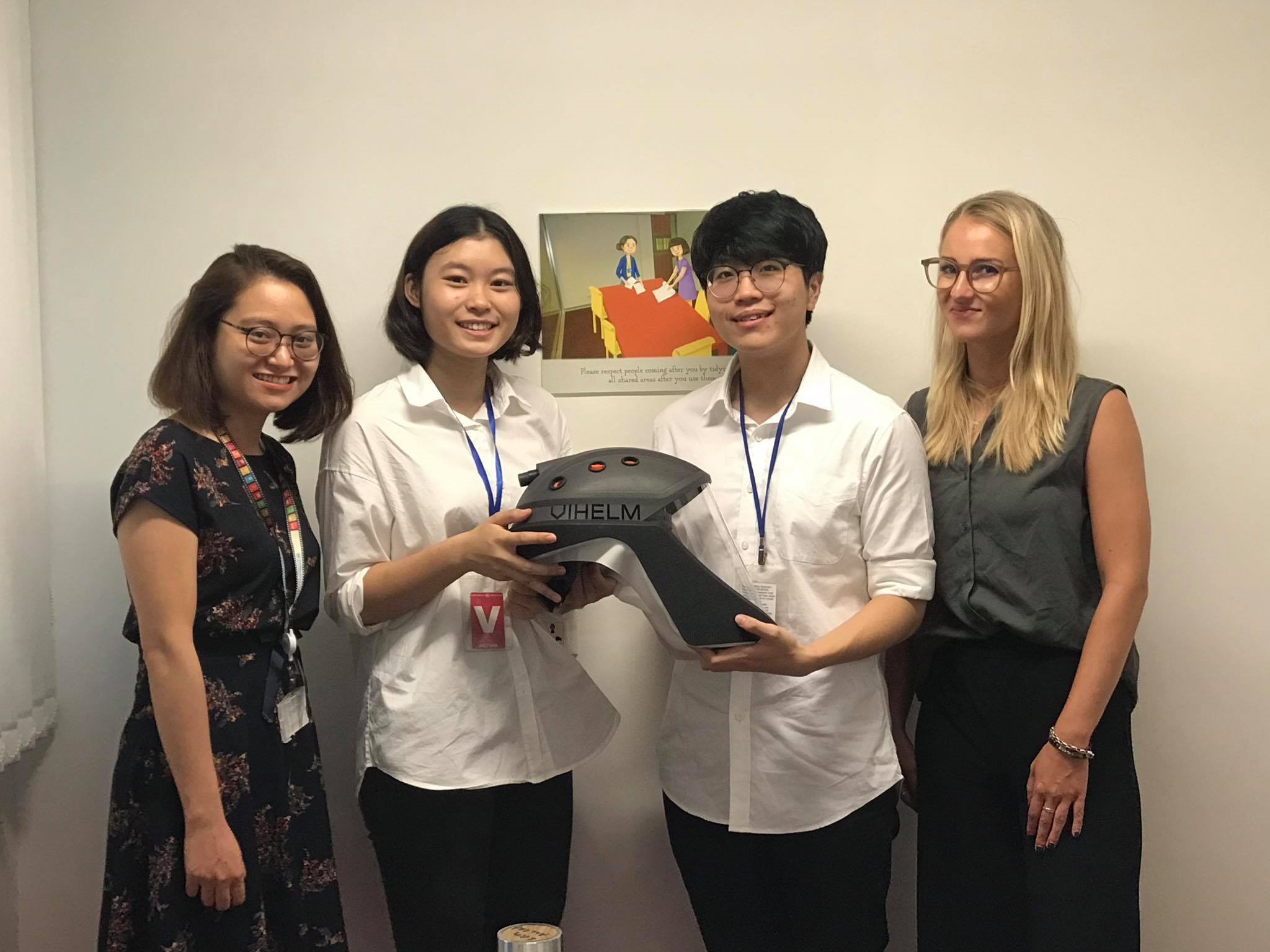With the goal of making a comfortable device that can prevent the spread of novel coronavirus disease (COVID-19) while allowing the wearer to maintain social interactions, two Vietnamese students have successfully created the initial prototype for a new-age respirator.
The device was introduced by the United Nations Development Program (UNDP) at a workshop jointly held with the Central Institute of Economic Management (CIEM) in Hanoi on Friday last week.
Listed among the UNDP's category of grassroots and social innovations, the portable device impressed audiences at the workshop, which focused on Vietnam’s inclusive innovation policy, particularly strategies for science, technology, and innovation.
The powered air-purifying respirator ‘Vihelm’ — an abbreviation for ‘Vietnamese helmet’ — was created by Do Trong Minh Duc, 16, a student at the Florida-based private K-12 school Montverde Academy, and Tran Nguyen Khanh An, 14, a student at the Hanoi Academy Bilingual International School in the Vietnamese capital city.
Vihelm is a medical respirator built as a portable device that can help the wearer self-quarantine while going about their daily life.
The idea behind Vihelm is that wearers can enjoy the freedom of not being put in mandatory 14-day quarantine required for anyone entering Vietnam from abroad.
Duc and An came up with the idea based off requests from their mentors who asked students to create a respirator that not only prevents the spread of COVID-19 but also helps people remain productive while undergoing quarantine in case the pandemic continues to linger.
Duc is one of several under-18 overseas students who was repatriated from the U.S. to avoid the COVID-19 pandemic, thanks to support from the Vietnamese government.
|
|
| The second-generation Vihelm respirator, weighing 0.72 kilograms, is seen in a supplied photo. |
The battery-powered respirator was designed based on the structure of existing powered air-purifying respirators (PAPR), which meet globally recognized standards and provide wearers with protection 100 times safer than N99 face masks.
One downside of the PAPR, however, is that it is very difficult to wear for extended periods as the wearer cannot scratch their head or face if they feel itchy, according to the U.S. Department of Health and Human Services, which cites such reasons for the limited implementation of the PAPR in real-life disease prevention.
To address those drawbacks, An and Duc added many components including an air tube, helmet straps, elastic sealing rings, IR glass, a fan, and a glove inside.
The glove is similar to the Gloves Box designs seen in laboratories to support handling the face and head such as scratching, combined with integrated food compartments, according to a promotional video for the product.
Apart from those components, Vihelm also has head-scratch pockets on top of the helmet, which the wearers can use to scratch their heads when they are wearing it for prolonged amounts of time.
Thanks to the innovation, Vihelm users can work continuously for up to four hours without worrying about overheating or itching.
They can even feed themselves with the food to be placed in advance inside the helmet’s food compartment.
|
|
| Do Trong Minh Duc (second right) and Tran Nguyen Khanh An (second left) pose with two experts on innovation from UNDP Vietnam at the agency’s headquarters in Hanoi, July 3, 2020 in a supplied photo. |
The respirator can protect the wearer from pathogens with a maximum efficiency of 99.9 percent, according to the results of tests conducted by product developers.
The two teenage inventors are improving the device in order to achieve a final model suitable for commercial use.
The Vihelm has been patented and financially invested in by their families from the stage of concept development and design to the launch of the first prototype. The duo is also seeing to attract additional investors.
The two students behind the helmet have registered to compete at the 5th International Invention Innovation Competition in Canada (iCAN 2020), which is organized by the Toronto International Society of Innovation & Advanced Skills (TISIAS).
Like us on Facebook or follow us on Twitter to get the latest news about Vietnam!





















































